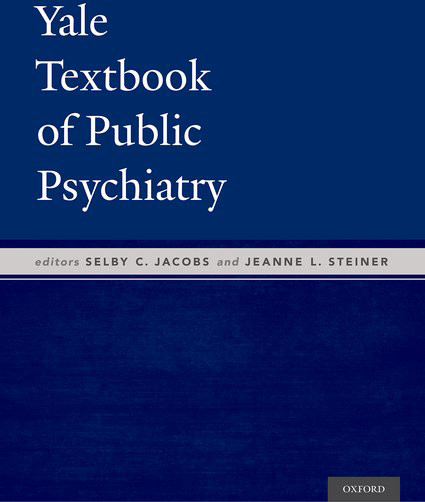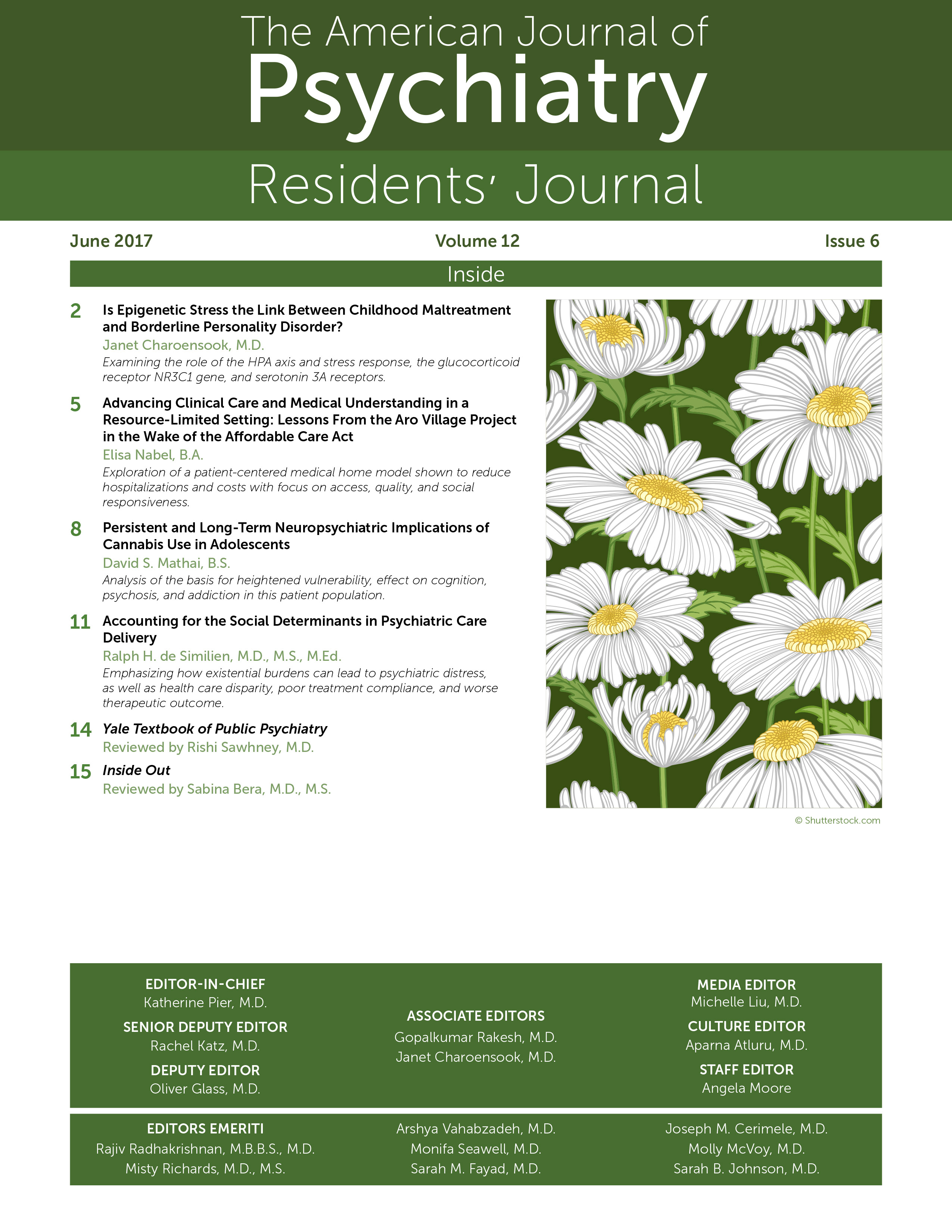The Yale Textbook of Public Psychiatry is a tremendous feat, as it is the first textbook geared toward the rapidly growing field of public psychiatry, a field that has only become more relevant with all the changes occurring in the United States health care system. This textbook is available in hardcover and eBook. It includes contributions from 74 faculty members and is edited by Selby C. Jacobs, M.D., Professor Emeritus of Psychiatry and former Director (and CEO) of the Connecticut Mental Health Center in New Haven, and Jeanne L. Steiner, D.O., Medical Director of the Connecticut Mental Health Center in New Haven and Director of the Yale Fellowship in Public Psychiatry.
The book begins by defining public psychiatry as “that part of the practice of psychiatry that is 1) financed by the general funds of state departments of mental health or 2) by reimbursement income from entitlements such as Medicaid” (pp. 1–2). As described in the book, “public psychiatry uses not only a clinical perspective while caring for the individual service user, but also a population perspective” (p. 2). In order to help explain how both states and the federal government work together to create a public psychiatry system, the textbook weaves in the experiences, challenges, and systems in place for the Connecticut mental health system throughout the various topics and chapters.
The textbook covers various topics from a public psychiatry perspective and details evidence-based approaches for topics such as substance use disorders, child psychiatry, outpatient care, and inpatient care while also including topics of growing importance like recovery-oriented practice, integrated health care, and early intervention and prevention for psychosis. Thus, it is an introduction to the field of public psychiatry but is also valuable to residents entering the fields of addiction psychiatry, child psychiatry, hospital-based psychiatry, forensic psychiatry, community psychiatry, and global mental health, as it details the systems in place in those fields.
This book is a vital asset to both general residency training programs and public psychiatry fellowship training programs. It concisely educates readers on many topics that can be confusing, hard to teach, and sometimes lacking as part of training despite their importance, such as delivery models of health care, financing of health care, and the basics of Medicaid and Medicare.
As a resident starting public psychiatry fellowship next year, I found the book enjoyable and a pleasure to read. It easily explains so many different topics and simultaneously generates enthusiasm and hope regarding how the system of public psychiatry has improved and the continued possibilities for system improvements. In a time of ongoing change due to the Affordable Care Act of 2010 and its unknown future, as this law is being threatened to be repealed, this textbook is an invaluable resource in understanding why the system is the way it is and offers solutions for the implementation of evidenced-based practices in the mental health care system going forward.

